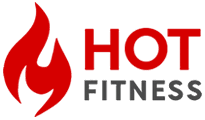
- 1. Understanding Muscle Growth: The Science Behind It
- 2. Proper Nutrition: Fueling Your Muscle Gain
- 3. Strength Training Techniques for Maximum Muscle Growth
- 4. The Importance of Rest and Recovery
- 5. Supplements to Support Muscle Growth
- 6. Real-Life Case Study: Muscle Gain Success Story
- 7. Where to Train for the Best Muscle Gain Results
1. Understanding Muscle Growth: The Science Behind It
Before diving into specific tips and techniques for improving muscle gain, it’s crucial to understand the science behind muscle growth. Muscle growth, also known as hypertrophy, occurs when muscle fibers undergo stress (from resistance training) and repair themselves by growing back stronger. This process involves breaking down muscle fibers during workouts, which then rebuild with proper nutrition and rest. Over time, this results in increased muscle size and strength.
It’s important to note that muscle growth is not an overnight process. The body requires consistent stimulation, proper recovery, and adequate nutrients to optimize muscle building. Therefore, understanding the balance between these factors is essential for any effective muscle gain strategy.

WestFit / gyms in westford ma
WestfordMiddlesex CountyMassachusetts
4 Littleton Rd, Westford, MA 01886, USA
2. Proper Nutrition: Fueling Your Muscle Gain
Nutrition plays a vital role in muscle gain. Without the right nutrients, even the best training regimen won’t lead to significant muscle growth. Here are the key nutritional factors to focus on:
- Protein: Protein is the building block of muscle. Consuming an adequate amount of protein ensures that your muscles have the necessary amino acids to repair and grow. Aim for 1.2 to 2.0 grams of protein per kilogram of body weight, depending on your intensity level and goals.
- Carbohydrates: Carbs are important for energy during workouts. Consuming complex carbohydrates, such as oats, brown rice, and sweet potatoes, helps sustain energy levels throughout intense training sessions.
- Fats: Healthy fats, like those found in avocados, nuts, and olive oil, are crucial for hormone production, including testosterone, which plays a significant role in muscle growth.
Additionally, maintaining a slight calorie surplus (eating more calories than you burn) can be beneficial for muscle gain, as the body needs extra energy to build new muscle tissue. However, be mindful to avoid excessive calorie intake, which can lead to unwanted fat gain.

Soulage Baltimore / soulage baltimore
9 E Franklin St First Floor, Baltimore, MD 21202, USA
3. Strength Training Techniques for Maximum Muscle Growth
The most effective way to stimulate muscle growth is through strength training. However, not all strength training techniques are created equal. To maximize muscle gain, focus on these key strategies:
- Progressive Overload: To continue building muscle, you must consistently increase the resistance or volume in your workouts. This can be done by adding more weight, increasing the number of sets or reps, or reducing rest time between sets.
- Compound Movements: Compound exercises, like squats, deadlifts, and bench presses, engage multiple muscle groups and allow you to lift heavier weights, leading to greater muscle growth.
- Isolation Exercises: While compound movements are essential, isolation exercises, such as bicep curls and tricep extensions, help target specific muscles, promoting balanced muscle development.
- Variety in Rep Ranges: Aim to vary your rep ranges. For strength and hypertrophy, sets of 6–12 reps are ideal, but occasionally incorporating higher or lower rep ranges (e.g., 1–5 for strength or 15+ for endurance) can prevent plateaus and promote muscle growth.
Incorporating a mix of compound and isolation exercises, along with progressive overload, will ensure that your workouts stimulate continuous muscle growth.
4. The Importance of Rest and Recovery
Rest and recovery are often overlooked, but they are just as important as training when it comes to muscle gain. Muscle fibers need time to repair and grow stronger, which happens during rest periods. Overtraining can lead to fatigue, injury, and stunted muscle growth.
Getting enough sleep is one of the most important factors in muscle recovery. Aim for 7-9 hours of sleep per night to allow your body to repair muscle tissue and regulate growth hormones. Additionally, incorporating rest days into your training routine helps prevent overtraining and ensures muscles have time to recover.
Active recovery methods, such as light stretching or low-intensity cardio, can also help improve circulation and reduce muscle soreness without hindering muscle growth.
5. Supplements to Support Muscle Growth
While proper nutrition and training are the foundation for muscle gain, supplements can support your efforts. The following science-backed supplements have been shown to enhance muscle growth:
- Protein Powder: Whey protein, casein, or plant-based protein powders can help you meet your daily protein needs, especially if you find it difficult to consume enough through food alone.
- Creatine: Creatine has been extensively studied and shown to improve strength, power, and muscle mass. It works by increasing the body’s ability to perform high-intensity exercise.
- Branched-Chain Amino Acids (BCAAs): BCAAs help reduce muscle soreness and promote muscle repair. They are especially useful when training intensely or during periods of calorie restriction.
- Beta-Alanine: This supplement helps buffer lactic acid in muscles, improving endurance and delaying fatigue during high-intensity exercise.
Supplements should complement a solid diet and training program, not replace them. Always consult with a healthcare professional before introducing new supplements into your routine.
6. Real-Life Case Study: Muscle Gain Success Story
Let’s take the case of John, a 32-year-old fitness enthusiast who struggled with muscle gain for years. Despite following a strict workout plan, he wasn’t seeing the results he wanted. After analyzing his routine, he realized his nutrition wasn’t in line with his muscle-building goals. He adjusted his diet, increasing his protein intake and ensuring a slight calorie surplus.
John also shifted his workout strategy to focus more on progressive overload and compound movements. After a few months of consistent training and nutrition adjustments, he began to notice significant muscle growth. By prioritizing recovery, including better sleep, John was able to push past his plateaus and achieve his muscle-building goals.
John’s success shows that muscle gain isn’t just about lifting heavier weights; it’s about consistently improving every aspect of your training, nutrition, and recovery.
7. Where to Train for the Best Muscle Gain Results
To maximize your muscle gain potential, it’s important to train in an environment that supports your goals. Many gyms offer specialized equipment and group training classes tailored for muscle growth. If you’re looking for personalized attention, working with a certified personal trainer can provide valuable insights and adjustments to your technique, helping you progress more quickly.
For the best fitness products and services to complement your muscle gain journey, visit Hot Fitness to discover high-quality equipment, supplements, and expert advice tailored to your needs.







 AntiGravity LAB4.0 (88 reviews)
AntiGravity LAB4.0 (88 reviews) PowerUp Pilates Halcyon3.0 (37 reviews)
PowerUp Pilates Halcyon3.0 (37 reviews) Adams Bootcamp Boxing4.0 (39 reviews)
Adams Bootcamp Boxing4.0 (39 reviews) Jakked Gym5.0 (110 reviews)
Jakked Gym5.0 (110 reviews) Revel Yoga Studio5.0 (56 reviews)
Revel Yoga Studio5.0 (56 reviews) AKOA Fitness Studio4.0 (24 reviews)
AKOA Fitness Studio4.0 (24 reviews) Why Yoga Is the Secret to Your Success
Why Yoga Is the Secret to Your Success Best Practices for Hydration During Cold, Dry Fall Runs and Workouts
Best Practices for Hydration During Cold, Dry Fall Runs and Workouts The Best Methods to Combine Strength, Mobility, and Cardio Into a Single 45-Minute Session
The Best Methods to Combine Strength, Mobility, and Cardio Into a Single 45-Minute Session How to Plan a Deload Week After Peak Fall Training Without Losing Fitness
How to Plan a Deload Week After Peak Fall Training Without Losing Fitness 10 Common Fitness Mistakes to Avoid for Better Results
10 Common Fitness Mistakes to Avoid for Better Results The Best Strength Training for Busy People
The Best Strength Training for Busy People